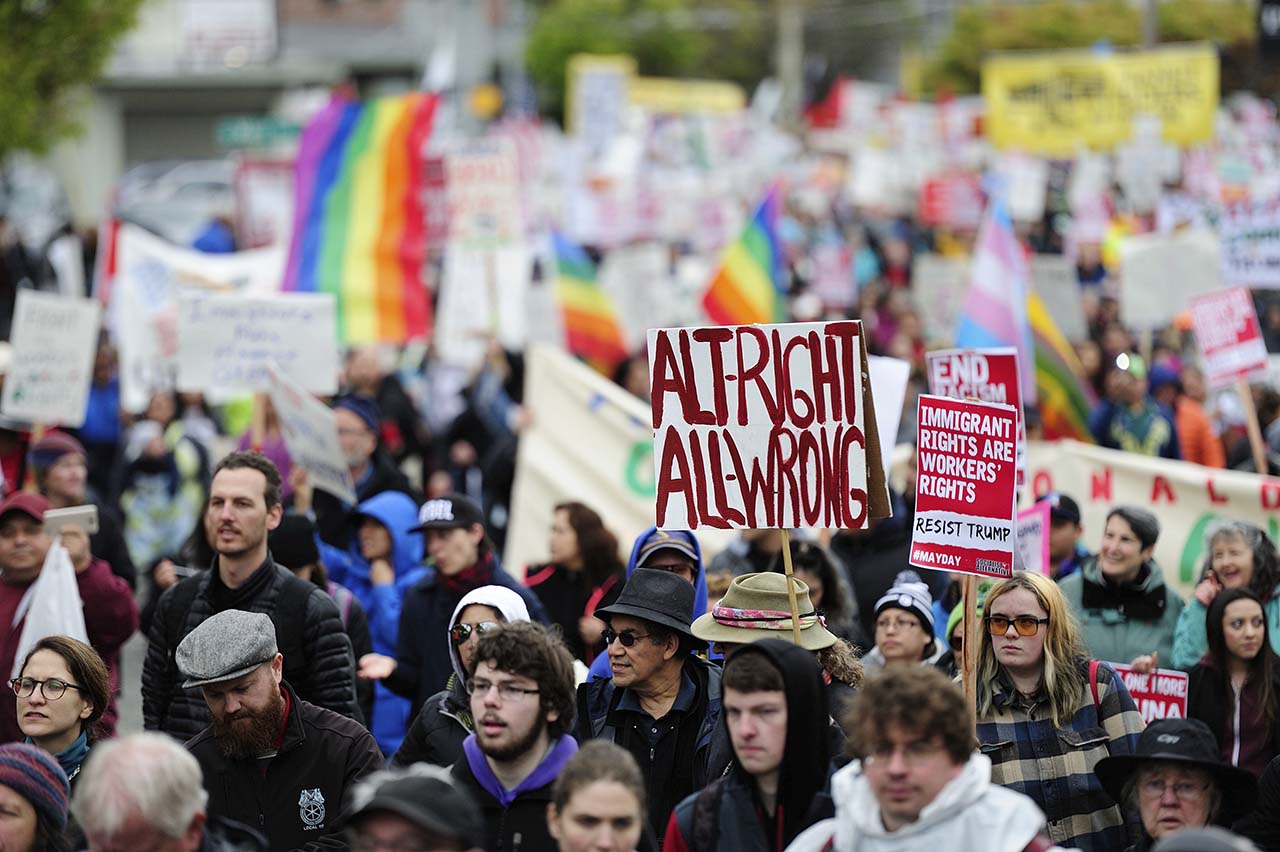With college students returning to class in the coming weeks, the SPLC released a new guide today that advises them on how to respond when speakers associated with the growing white nationalist, or “alt-right,” movement, appear on campus.
In recent months, numerous campuses have been rocked by student protests sparked by the scheduled appearances of alt-right figures such as Richard Spencer and Milo Yiannopoulos.
The alt-right activity is part of a larger surge in campus organizing and recruitment by white nationalists. Now, the movement is seeking to capitalize on the publicity and momentum it gained amid its strong support of the Trump campaign.
Some of the recent protests, at Berkeley and elsewhere, have attracted far-left activists known as anti-fascists and have turned violent, igniting a debate over freedom of speech on campus.
In its new publication – The Alt-Right on Campus: What Students Need to Know – the SPLC advises students to avoid direct confrontation with alt-right speakers and their supporters, many of whom are young white supremacists eager to engage in street fighting with students and anti-fascist protesters.
The guide is a project of the SPLC on Campus program, which currently has chapters at 30 colleges across the country.
“The rise of the alt-right has left many students deeply concerned about hate on campus and asking what they can do to make a difference,” said Lecia Brooks, SPLC director of outreach. “This guide provides answers. It not only shows students how to respond to a possible alt-right event, but how to inoculate your campus against such extremism before these speakers appear on campus.”
In addition to offering step-by-step instructions for students to counter the movement’s influence, the guide explains the racist ideology of the alt-right and profiles its leaders.
As the guide explains, public universities that have a policy allowing student groups to host outside speakers cannot legally bar alt-right speakers except under the most extreme circumstances. The SPLC urges students to hold alternative events that celebrate diversity, inclusion and cultural awareness. In addition, they should speak out against hate and encourage university administrators to issue statements condemning the views of alt-right speakers.
SPLC President Richard Cohen testified in June before the U.S. Senate Committee on the Judiciary about the obligation of universities to uphold not only the First Amendment rights of controversial speakers but to speak out against hate and bigotry.
“We need to fight speech that threatens our nation’s democratic values with speech that upholds them,” Cohen said in his oral testimony. “It’s an obligation that university officials have and one that everyone in public life, starting with the president, has as well.”



